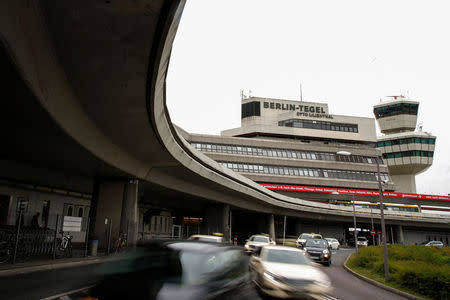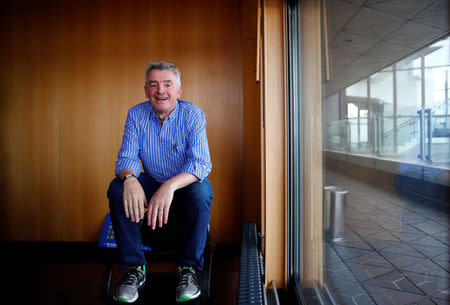Divided again: Berliners at odds over fate of inner-city airport
By Caroline Copley and Victoria Bryan BERLIN (Reuters) - With Angela Merkel looking set to remain German chancellor after a Sept. 24 election, another vote that day looks far less conclusive - on whether to shut down Berlin's Tegel airport that served the city through the Cold War. Under a current planning agreement, Tegel will close six months after the opening of the new Berlin Brandenburg International airport - a grand project that itself has turned into something of a national fiasco, its opening delayed repeatedly by construction and planning problems. Critics say Berlin Brandenburg, even when complete, will be too small to meet passenger demand and want Tegel retained to serve around 10 million passengers per year, mainly on short-haul flights. Tegel rose in just 90 days in 1948 to support the Berlin Airlift, a huge operation to ship supplies and thwart a Soviet blockade of West Berlin. Its hexagonal concrete terminal, dating to the 1970s, remains much-loved by many Berliners and business travellers due to its proximity to the city centre. "It's completely irrational to close an efficient and profitable airport," said Michael Kromarek, who chairs the association - 'Tegel Bleibt Offen' - 'Keep Tegel Open'. Many travellers see the quality of TXL, to use its international identification code, in its simplicity. "It's not the best airport to shop in, but it's the best airport to fly from," said Wolfgang Goerwitz, 70, as he queued to check in to his Austrian Airlines flight to Vienna. ANTIQUATED Others say its days are numbered. Helmut Moeller from the group 'Tegel Endlich Schliessen' - 'Close Tegel At Last' says the airport is "antiquated" and does not meet current safety standards. Moreover, plans to build flats and a new business park on the site to boost Berlin's economy would have to be shelved. Berlin's airport operator says Tegel would need to be renovated at a cost of 1 billion euros, while running both airports would incur extra costs of at least 100 million euros a year. New noise protection measures would also be needed to assuage local residents weary of the roar of jet engines. Even Merkel has said she sees no future for Tegel given a legal agreement between the airport's owners, the government and the states of Berlin and Brandenburg, for just one single airport in the region. Polls ahead of the non-binding referendum have narrowed in recent weeks with 52 percent in favour of keeping Tegel compared with 42 percent who want it closed, according to a survey published on Thursday. Airlines are also at odds over Tegel's fate. Germany's biggest carrier Lufthansa, wants Berlin to have just one airport, saying it makes transfers easier. It cites the example of Frankfurt and Munich, which each have one airport used as a hub for transfer traffic by Lufthansa. Milan is an example of a city where one airport, Linate, was due to close in favour of a new one, Malpensa. However, both have remained open and Alitalia never made Malpensa its sole hub as had initially been planned. Ryanair Chief Executive Michael O'Leary, whose airline wants to grow more in Berlin and has sponsored 100 placards supporting Tegel, said it would be a "joke" for a city of Berlin's size to have just one airport. The new airport will have a capacity of 27 million, fewer than the 33 million who last year used Tegel and its other remaining Cold War airport Schoenefeld, which served East Berlin. "We talk about German efficiency, German planning and German brilliance – this is the stupidest plan invented ever by the Germans; this is a plan that the British would have designed," O'Leary said. ($1 = 0.8339 euros) (Editing by Ralph Boulton)






